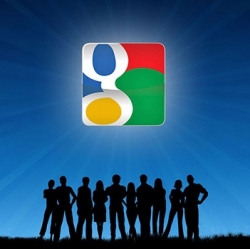
In an interview with the Guardian, Google co-founder Sergey Brin warned that the "open" Internet is in danger from very powerful forces, including Facebook and Apple.
"I am more worried than I have been in the past … it’s scary," he said
Brin identified the serious threats to the open Internet as repressive governments trying to control access to the Internet, entertainment industry crackdowns on piracy and so-called "wall gardens" that maintain more strict control over what can be done on their technology platforms, citing Facebook and Apple.
He said that Facebook and Apple are stifling innovation and risk Balkanizing the Web, and went as far as to say that Google would never have come into existence if Facebook were dominant.
"You have to play by their rules, which are really restrictive. The kind of environment that we developed Google in, the reason that we were able to develop a search engine, is the web was so open. Once you get too many rules that will stifle innovation."
Of course, there is some self-interest and sour grapes in Brin’s assessment. He would like to make all the information inside Facebook and Apple apps accessible to Google’s search engine. A more open Web is certainly very good for the world but it’s also very good for Google’s bottom line. And, Google’s main effort at social networking, Google+, has a long way to go to catch Facebook, which has more that four times the number of users and continues to gain momentum, including its recent purchase of the mobile photo-sharing app, Instagram. In addition, Apple, which has ridden it’s proprietary approach to become the most valued company in the world, is Google’s main competitor in the smartphone and tablet arena, another area critical to Google’s business success.
Brin also complained about Facebook making it difficult for users to move their data to other services, presumably Google+. "Facebook has been sucking down Gmail contacts for many years," he said.
Brin’s comments on his chief competitors may be the start of an escalating war of words and technology as the giant colonizers of the Web continue their competitive quests for dominance. Keep in mind what the Web’s inventor Tim Berners-Lee has said:
A related danger is that one social-networking site–or one search engine or one browser–gets so big that it becomes a monopoly, which tends to limit innovation. As has been the case since the Web began, continued grassroots innovation may be the best check and balance against any one company or government that tries to undermine universality.
